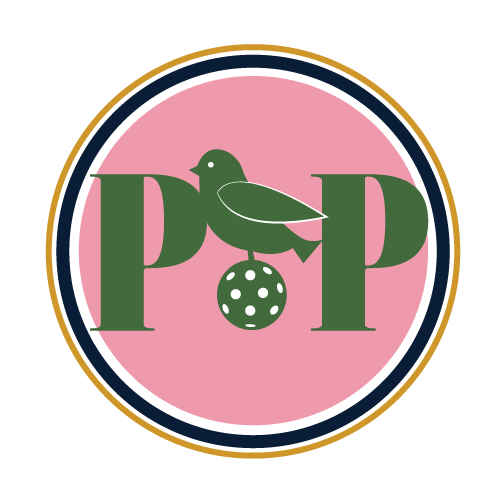
Glossary Page
Kitchen (Non-Volley Zone): The area 7 feet from the net on both sides where volleying (hitting the ball in the air before it bounces) is not allowed.
Dink: A soft shot that lands in the opponent’s kitchen.
Volley: Hitting the ball in the air before it bounces.
Serve: The shot that starts a point. Must be made diagonally to the opponent’s service court.
Return of Serve: The shot made by the receiver after the serve.
Double Bounce Rule: After the serve, each side must let the ball bounce once before volleys are allowed.
Fault: A rule violation, such as hitting the ball out of bounds, not clearing the net, or stepping into the kitchen to volley the ball.
Side Out: When the serve switches to the opposing team.
Let: A serve that hits the net but lands in the correct service court. The serve is retaken without penalty.
Rally: The sequence of hitting the ball back and forth between opponents.
Lob: A high, deep shot aimed to go over the opponent’s head.
Drop Shot: A soft shot intended to drop just over the net into the opponent’s kitchen.
Smash: A hard, overhead shot directed downward into the opponent’s court.
Third Shot Drop: A soft shot usually made after the serve and return of serve, intended to drop into the opponent’s kitchen.
Drive: A fast, powerful shot aimed to pass low over the net.
Poaching: When one player crosses into their partner’s area to make a play on the ball.
Spin: Applying rotation to the ball to affect its bounce and trajectory.
Singles: A game format with one player on each side.
Doubles: A game format with two players on each side.
Paddle: The equipment used to hit the ball. Smaller than a tennis racquet and larger than a ping-pong paddle.
Pickleball: The plastic ball with holes used in the game.
Ace: A serve that the opponent cannot return, winning the point immediately.
Foot Fault: When a player steps into the non-volley zone while volleying or steps on/over the baseline while serving.
Drop Serve: A serve where the ball is dropped from any height and then hit after it bounces.
